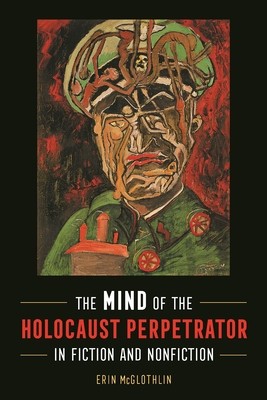
- We will send in 10–14 business days.
- Author: Erin McGlothlin
- Publisher: Wayne State University Press
- ISBN-10: 0814348343
- ISBN-13: 9780814348345
- Format: 15.2 x 22.9 x 2 cm, minkšti viršeliai
- Language: English
- SAVE -10% with code: EXTRA
Mind of the Holocaust Perpetrator in Fiction and Nonfiction (e-book) (used book) | bookbook.eu
Reviews
Description
The Mind of the Holocaust Perpetrator in Fiction and Nonfiction examines texts that portray the inner experience of Holocaust perpetrators and thus transform them from archetypes of evil into complex psychological and moral subjects. Employing relevant methodological tools of narrative theory, Erin McGlothlin analyzes these unsettling depictions, which manifest a certain tension regarding the ethics of representation and identification. Such works, she asserts, endeavor to make transparent the mindset of their violent subjects, yet at the same time they also invariably contrive to obfuscate in part its disquieting character.
The Mind of the Holocaust Perpetrator in Fiction and Nonfiction contains two parts. The first focuses on portraits of real-life perpetrators in nonfictional interviews and analyses from the 1960s and 1970s. These works provide a nuanced perspective on the mentality of the people who implemented the Holocaust via the interventional role of the interviewer or interpreter in the perpetrators' performances of self-disclosure. In part two, McGlothlin investigates more recent fictional texts that imagine the perspective of their invented perpetrator-narrators. Such works draw readers directly into the perpetrator's experience and at the same time impede their access to the perpetrator's consciousness by retarding their affective connection. Demonstrating that recent fiction featuring perpetrators as narrators employs strategies derived from earlier nonfictional portrayals, McGlothlin establishes not only a historical connection between these two groups of texts, whereby nonfictional engagement with real-life perpetrators gradually gives way to fictional exploration, but also a structural and aesthetic one.
The book bespeaks new modes of engagement with ethically fraught questions raised by our increasing willingness to consider the events of the Holocaust from the perspective of the perpetrator. Students, scholars, and readers of Holocaust studies and literary criticism will appreciate this closer look at a historically taboo topic.
EXTRA 10 % discount with code: EXTRA
The promotion ends in 22d.22:05:25
The discount code is valid when purchasing from 10 €. Discounts do not stack.
- Author: Erin McGlothlin
- Publisher: Wayne State University Press
- ISBN-10: 0814348343
- ISBN-13: 9780814348345
- Format: 15.2 x 22.9 x 2 cm, minkšti viršeliai
- Language: English English
The Mind of the Holocaust Perpetrator in Fiction and Nonfiction examines texts that portray the inner experience of Holocaust perpetrators and thus transform them from archetypes of evil into complex psychological and moral subjects. Employing relevant methodological tools of narrative theory, Erin McGlothlin analyzes these unsettling depictions, which manifest a certain tension regarding the ethics of representation and identification. Such works, she asserts, endeavor to make transparent the mindset of their violent subjects, yet at the same time they also invariably contrive to obfuscate in part its disquieting character.
The Mind of the Holocaust Perpetrator in Fiction and Nonfiction contains two parts. The first focuses on portraits of real-life perpetrators in nonfictional interviews and analyses from the 1960s and 1970s. These works provide a nuanced perspective on the mentality of the people who implemented the Holocaust via the interventional role of the interviewer or interpreter in the perpetrators' performances of self-disclosure. In part two, McGlothlin investigates more recent fictional texts that imagine the perspective of their invented perpetrator-narrators. Such works draw readers directly into the perpetrator's experience and at the same time impede their access to the perpetrator's consciousness by retarding their affective connection. Demonstrating that recent fiction featuring perpetrators as narrators employs strategies derived from earlier nonfictional portrayals, McGlothlin establishes not only a historical connection between these two groups of texts, whereby nonfictional engagement with real-life perpetrators gradually gives way to fictional exploration, but also a structural and aesthetic one.
The book bespeaks new modes of engagement with ethically fraught questions raised by our increasing willingness to consider the events of the Holocaust from the perspective of the perpetrator. Students, scholars, and readers of Holocaust studies and literary criticism will appreciate this closer look at a historically taboo topic.


Reviews